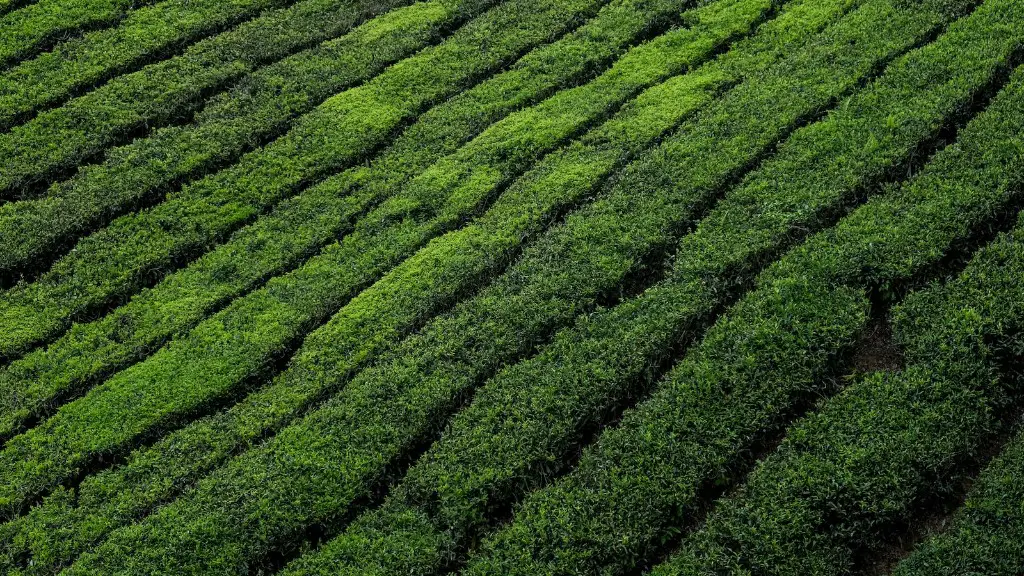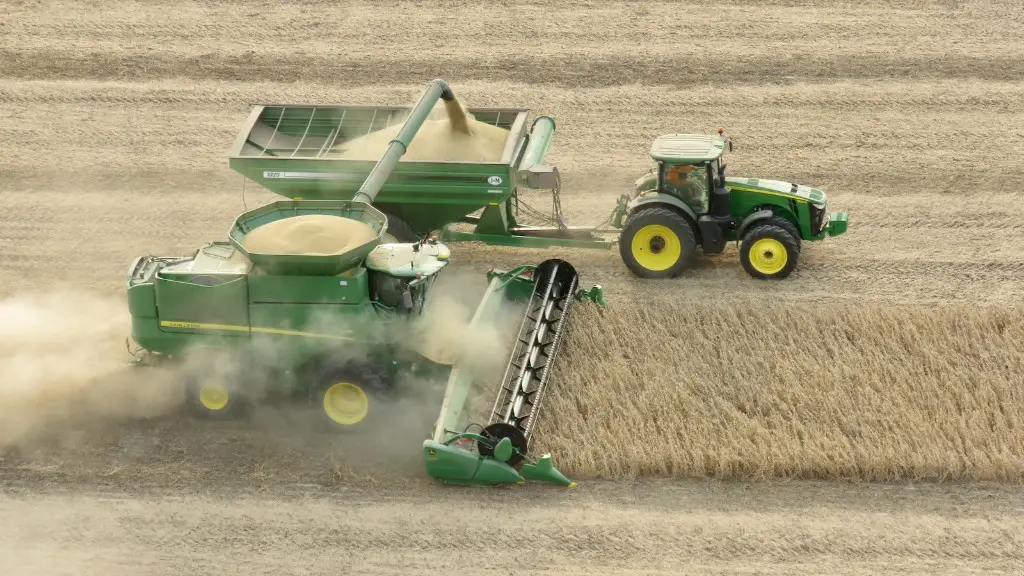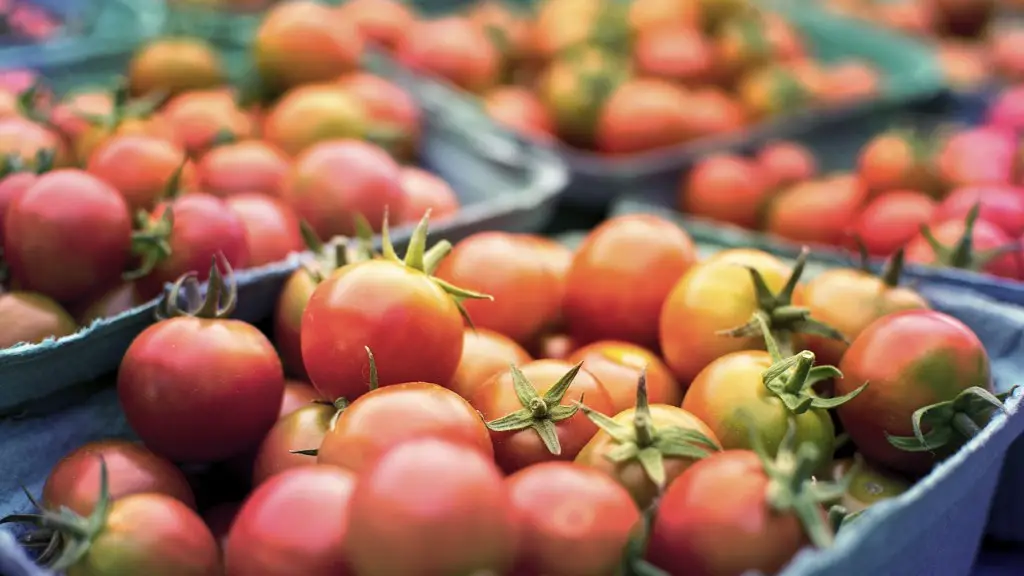Agriculture biotechnology is the application of scientific and engineering principles to the processing of materials for use in agriculture. including the development of new technologies for the benefit of farmers and consumers.
Agricultural biotechnology is the application of scientific and engineering principles to the processing of agricultural products for the purpose of improving their quality, quantity, or value.
What is meant by biotechnology in agriculture?
Agricultural biotechnology is a powerful tool that can be used to improve crops and animals, or to develop microorganisms for specific agricultural uses. When used correctly, it can help to increase yields, improve disease resistance, and even create new products. However, it is important to note that agricultural biotechnology is still relatively new, and there is always the potential for unforeseen consequences. As such, it is important to proceed with caution and to always consult with experts before making any changes.
Genetic engineering is a powerful tool that can be used to create new varieties of plants and animals with desirable traits. For example, genetic engineering can be used to develop herbicide-resistant seeds for soybeans, develop genetically engineered apples with extended shelf life, and create cows that produce more milk.
What are the 4 types of biotechnology
Biotechnology is the application of scientific and engineering principles to the processing of materials by biological agents to provide goods and services.
The main subfields of biotechnology are medical (red) biotechnology, agricultural (green) biotechnology, industrial (white) biotechnology, marine (blue) biotechnology, food biotechnology, and environmental biotechnology (Fig 11).
Medical biotechnology is the use of living cells and cell materials to research, develop, and produce pharmaceutical and diagnostic products that help to treat or prevent diseases.
Agricultural biotechnology is the use of scientific and engineering principles to modify living organisms to enhance agriculture, including the development of more productive and resilient crops, and the improvement of livestock.
Industrial biotechnology is the use of microorganisms to produce industrial chemicals, including enzymes, solvents, and fuels.
Marine biotechnology is the use of marine resources for the development of products and services, including the cultivation of marine plants and animals for food, the development of new marine drugs and biopesticides, and the production of biofuels.
Food biotechnology is the use of biotechnology in the food industry, including the development of new food products and processes, the improvement of food
The career prospects for agricultural biotechnology in India are quite good. The country is home to a large number of agriculture-based industries and companies that are always in need of skilled and qualified personnel. In addition, the government is also investing heavily in this sector, which is creating even more job opportunities.
What are the 5 major areas of biotechnology?
Biotechnology has revolutionized the way we live and work, and it shows no signs of slowing down. Today, the five branches into which modern biotechnology is divided — human, environmental, industrial, animal and plant — help us fight hunger and disease, produce more safely, cleanly and efficiently, reduce our ecological footprint and save energy.
The applications of biotechnology are endless, and its potential to improve our lives is tremendous. As we continue to explore the many ways in which biotechnology can help us, we are sure to make even more progress in the years to come.
Biotechnology is a branch of science that deals with the use of living organisms to create or modify products for specific purposes. Key applications of biotechnology include DNA profiling, DNA cloning, transgenesis, genome analysis, stem cells and tissue engineering.
DNA profiling is a technique used to identify individuals by their unique DNA signature. DNA cloning is a process whereby a copy of a piece of DNA is made. Transgenesis is the process of introducing new genes into an organism. Genome analysis is the study of an organism’s entire genetic makeup. Stem cells are cells that have the ability to develop into any type of cell in the body. Tissue engineering is the process of creating replacement tissues and organs.
What are the benefits of agriculture biotechnology?
Agricultural biotechnology has many potential benefits that could be extremely beneficial to farmers and consumers alike. These benefits include improved yields from crops, reduced vulnerability of crops to environmental stresses, increased nutritional qualities of food crops, improved taste, texture or appearance of food, reduced dependence on fertilizers, pesticides and other agrochemicals, and production of new compounds for use in medicine or industry. While some of these benefits are currently being realized, others remain potential uses that could be developed in the future.
GIS software and GPS agriculture:
GIS software and GPS systems are becoming increasingly popular in agriculture. They allow farmers to map their fields, track their crops, and monitor their soil and water conditions. GPS systems can also be used to guide farm equipment and direct agricultural chemicals.
Satellite imagery:
Satellite imagery is another new technology that is being used in agriculture. Satellite images can be used to map fields, track crops, and monitor soil and water conditions. They can also be used to guide farm equipment and direct agricultural chemicals.
Drone and other aerial imagery:
Drones and other aerial vehicles are being used to take pictures of crops and fields. This imagery can be used to map fields, track crops, and monitor soil and water conditions. Drones can also be used to spray crops with chemicals or deliver other inputs.
Farming software and online data:
There are a number of new software programs and online databases that are being used in agriculture. These tools can be used to map fields, track crops, and monitor soil and water conditions. They can also be used to plan farm operations and track agricultural chemicals.
Merging datasets:
One of the challenges facing agriculture is the need
What are the benefits and risks of agricultural biotechnology
The role of biotechnology in agriculture is multifaceted. With better disease control and increased tolerance to drought and flooding, biotechnology leads to a significant increase in crop production. The techniques of biotechnology serve as cost-effective solutions to problems about pests. Additionally, biotechnology can be used to develop new crops that are resistant to pests and diseases.
Biotechnology has revolutionized many industries and sectors, including environment, medicine, industry, and agriculture. It has provided new methods and techniques for sustainable environmental practices, efficient medical treatments, and productive industrial processes. Additionally, biotechnology has also enhanced agricultural productivity, making it an essential tool in the food security arsenal.
What is biotechnology in simple words?
Biotechnology is a field of science that uses living organisms to create or improve products. This can be done through manipulating genes, cells, or enzymes. For example, biotechnology is used to create new medicines, improve crops, and clean up environmental pollution.
Biotechnology offers many different types of career opportunities for those interested in the field. biomedical engineer, biochemist, medical scientist, clinical technician, microbiologist, process development scientist, biomanufacturing specialist, and business development manager are just a few of the many options available. Each career path has its own set of challenges and rewards, so it is important to do some research to find the one that best suits your interests and skills. With the right career choice, you can make a difference in the world of biotechnology and help to improve the lives of others.
How much does Agricultural Biotechnology earn in USA
This is a great salary for agricultural biotechnology jobs in the United States! As of Jan 16, 2023, the average annual pay for this category is $70,478 a year. This is a fantastic opportunity for those interested in this field to get started in their career!
Biotechnology can be an incredibly rewarding career option, with great job prospects and good pay. It can be a great choice for people with a strong interest in science and a desire to make a difference in the world.
Where can agricultural biotechnologist work?
There are many different types of Agricultural Biotechnology jobs available. Research Technician, Seed Technician, Lecturer, Agricultural Research, Biotechnology, and Science Faculty Instructor, Governor’s Honor’s Program HudsonAlpha – Greenhouse Assistant Part-Time are just a few examples. Agricultural Biotechnology is a growing field with many opportunities available.
There are many different types of degrees that can lead to a career in biotechnology. Some of the most popular include:
1. Biochemistry: As the title of the program suggests, biochemistry majors study chemistry as it relates to organic life.
2. Chemical Engineering: Neurobiology majors learn about the nervous system and how it works.
3. Physiology: This degree focuses on how the human body works.
4. Microbiology: Microbiology majors study tiny organisms that can have a big impact on human health.
5. New Media: Those interested in biotechnology often study new media in order to learn about the latest technological advances.
6. Zoology: Zoologists study animals, which can be helpful in developing new medicines and treatments.
7. Plant Science: Plant science majors learn about the biology of plants, which is essential in the field of agriculture.
Warp Up
Agricultural biotechnology is a field of science that uses a range of techniques to modify the genetic makeup of crops and other plants to improve their yield, quality or resistance to pests and diseases.
The application of agriculture biotechnology is vast and ever-growing. It has the potential to increase crop yields, reduce the use of pesticides, and make crops more resistant to diseases and pests. It also has the potential to improve the quality of food and create new, healthier food products. Agriculture biotechnology is an exciting and promising field that holds great potential for the future of food production.





